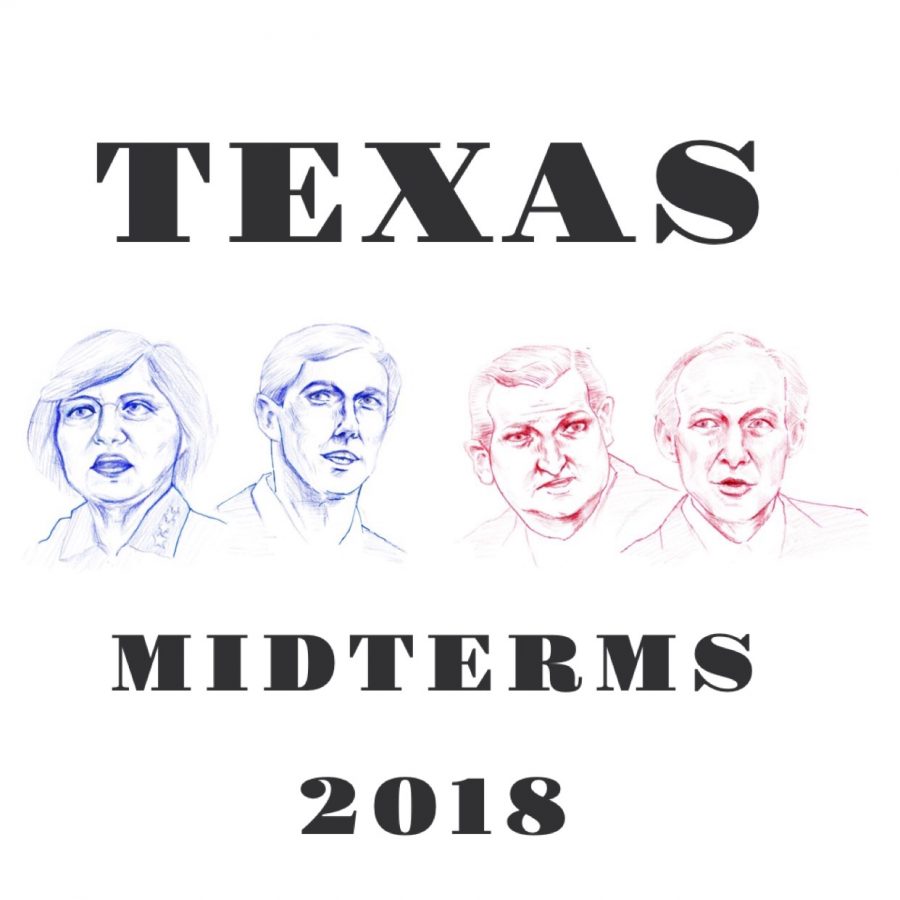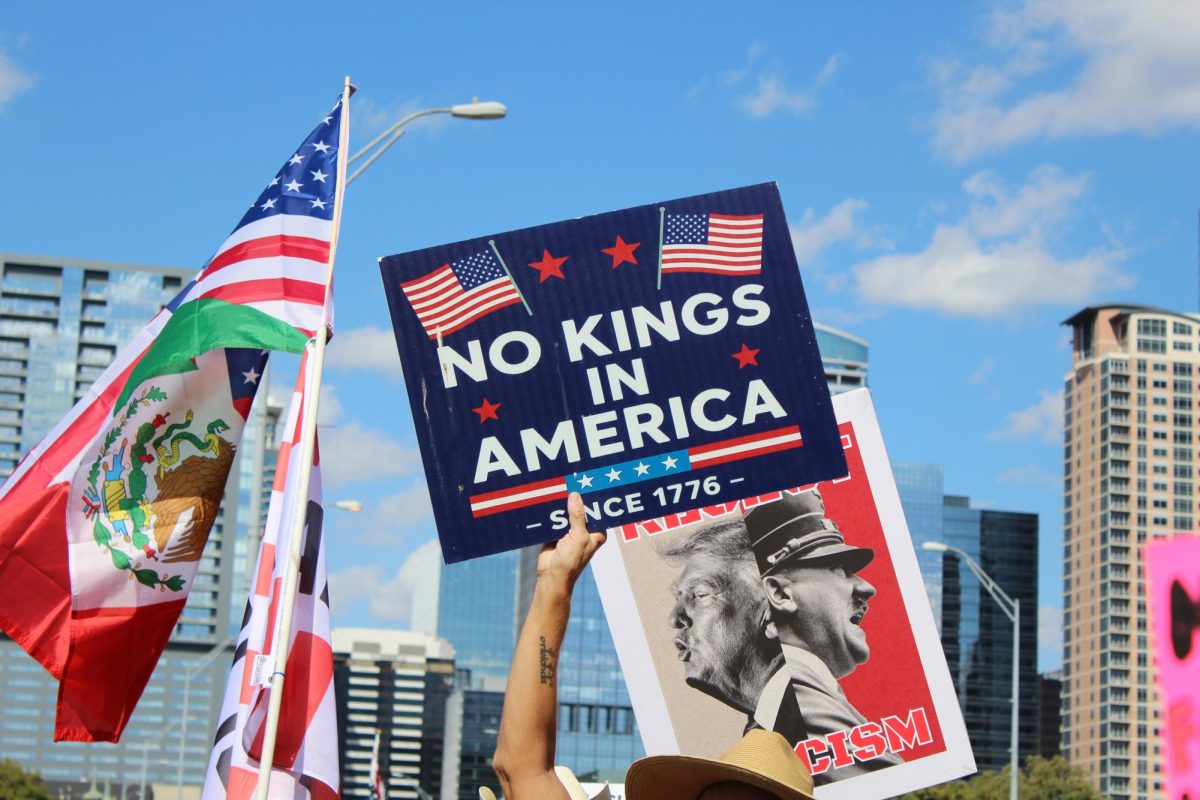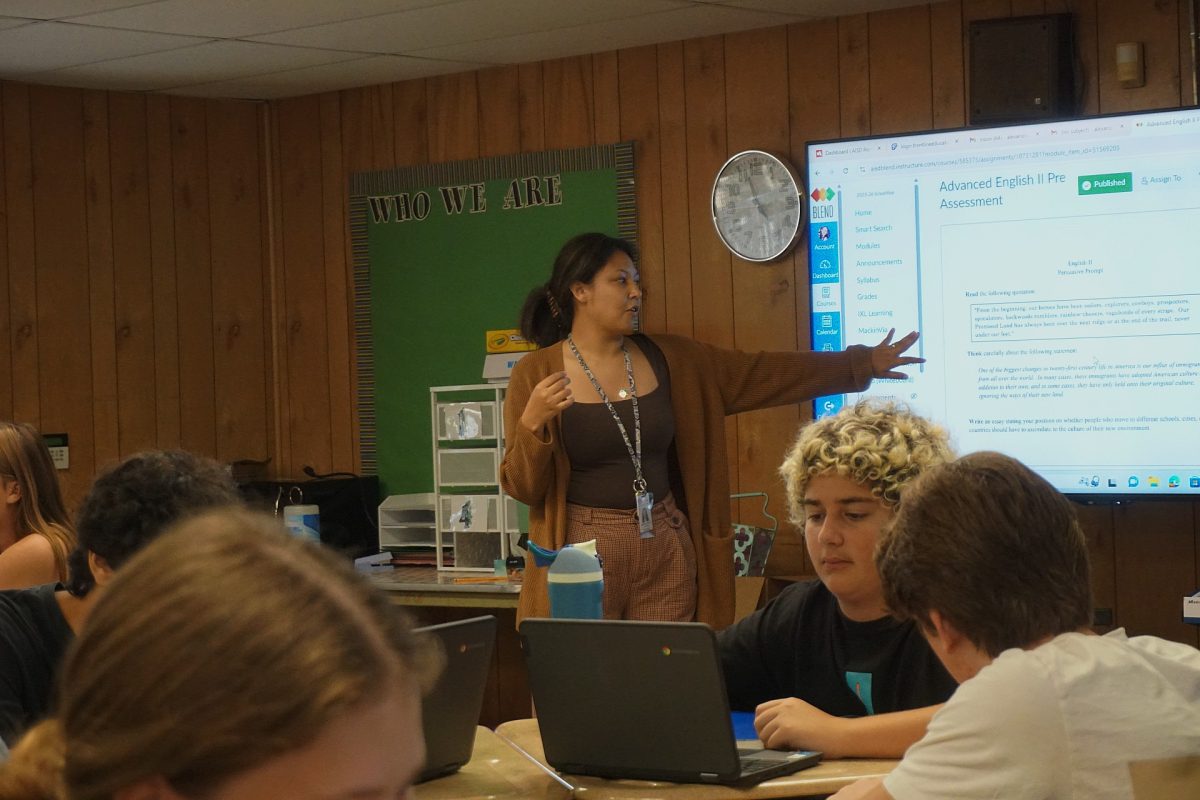UNITED STATES SENATE
The Texas political race this year that has attracted the most national attention has been the race for one of the two Texas Senate seats. Political analysts across the country have started paying attention to this race. Political analysts and major media outlets across the country have covered it extensively. The candidates, Republican incumbent U.S. Sen. Ted Cruz and U.S. representative, Beto O’Rourke (D-El Paso) stand at opposite ends of major issues that face the state, such as gun control, health care, and immigration.
O’Rourke, who campaigned in all 254 counties in Texas, discussed lenience for undocumented immigrants and those with DREAMer status during a debate between between the two candidates.
“I care about the safety of every single person in the state of Texas,” O’Rourke said. “No wall is going to solve legitimate security concerns, but smart policy will.”
Sen. Cruz meanwhile, shows strong support for ICE and increased border security.
“My views on immigration are simple, and I have summed them up many times in just four words; Legal good. Illegal bad. I think the vast majority of Texans agree with that.”
Texas shares the largest border with Mexico of all the Southern states. This stark divide between the two party ideologies on the issues of immigration has sparked national debate.
O’Rourke is garnering strong support in a state that has been historically Republican-controlled. Texas has not elected a Democrat to the U.S Senate since Ray Bentsen in 1988, and a Democrat has not won statewide election since Gov. Ann Richards in 1994 . Despite this track record, O’Rourke has out raised Cruz with $61 million to Cruz’s $34 million. O’Rourke has also outspent Cruz on statewide Television ads, which he began airing on Oct. 22, the first day of early voting in Texas. The enthusiasm statewide for O’Rourke, as well as national pollsters calling the senate race in Texas a “toss-up,” could mean change for the Lone Star State.
TEXAS GOVERNOR
The Texas governor’s race features two qualified candidates with extensive track records in both Texas and national politics. The two front-runners are incumbent, Republican Gov. Greg Abbott, and Democratic challenger, Lupe Valdez.
Valdez is the former Dallas county sheriff and first openly gay, female Latina candidate for governor in the state of Texas. She has a long history in Texas politics, specifically in Texas law enforcement. Valdez has held government jobs such as county jailer and federal investigator for the General services agency, U.S. department of agriculture, and the U.S Customs service.
Abbott, who has previously been Texas Attorney General and a Texas Supreme Court Justice, is strongly favored to win reelection; Texas has not had a Democratic governor since Ann Richards in 1994. Abbott gained the seat in the gubernatorial race against Wendy Davis in 2014.
TEXAS ATTORNEY GENERAL
Republican Ken Paxton is the incumbent Attorney General for the state of Texas. He has faced mass scrutiny as he was indicted three years ago for security fraud, federal charges. He has not been convicted as is still likely to reclaim the seat. Paxton has prided himself on working for Texans to crack down on crime.
Democrat Justin Nelson hopes to unseat him and has previously been a law clerk to Supreme Court Justice Sandra Day O’Connor. He has state that the state public education finance system needs reform and that he wants to protect pre-existing conditions for health care. Nelson unfortunately faces an uphill battle against the staunchly Republican establishment, as does the Libertarian candidate, Michael Ray Harris.
TEXAS STATE SENATE
District 14 of the Texas State senate is currently represented by Senator Kirk Watson (D-Austin). His challenger for the seat is Republican George Hindman, who has never held a public office.
Hindman comes from a technology background, as he started Keystone Aerospace, where he researched deep space navigation. Hindman is in favor of lowering school property taxes by reducing the public school budget. He has also been a proponent for imposing a limit on the amount that the property tax is raised each year.
Watson, who has focused on public health accessibility for the Austin community, and is working to make Austin more equipped to handle flooding, in the wake of the recent boil-water notice. During his tenure, Watson also introduced legislation in the Texas Senate to reduce property taxes for Texas homeowners. The candidate’s are joined on the ballot this election along with Independent Micah Verlander.
TEXAS HOUSE OF REPRESENTATIVES
Texas district 49 runs through the heart of downtown Austin north to south. Incumbent Gina Hinojosa (D-Austin), is running for her second term in office after being elected in 2016. Her opponent, Kyle Austin, R-Austin, is running without prior experience holding public office.
Austin is unlike the majority of Republican candidates on the ballot this November; he is 25 years old and supports the legalization of recreational marijuana. Another policy proposition: he wants to privatize K-12 public schools.
Hinojosa is in favor of keeping public schools public. Before she was elected to the Texas House, she served as president of AISD’s Board of Trustees in 2015, and stopped special interest groups looking to privatize Eastside Memorial High school. She also support women’s reproductive rights, stricter gun-control laws, and action against climate change.
U.S. CONGRESS RACE
Democrat Julie Oliver is currently running against Republican incumbent Roger Williams (R-Austin) to represent Texas’ District 25 in the U.S. House of Representatives.
Williams has been a supporter of lowering taxes for Texas business owners and increasing border security.
Oliver, who has run a grassroots campaign, going door to door herself and campaigning in the community she hopes to represent in Congress, supports health care for all, immigration reform and more restorative criminal justice. Libertarian Desarae Lindsey joins Williams and Oliver on the ballot this November.
TEXAS LIEUTENANT GOVERNOR’S RACE
The Texas lieutenant gubernatorial race is between Republican incumbent Dan Patrick and Democratic challenger Mike Collier. The lieutenant governor is a powerful position in Texas politics, who presides over the Texas State Senate. Patrick has held the position since 2014, when he beat out then Republican incumbent David Duhurst.
Collier has previously worked for Exxon and PriceWaterCoopers, a major accounting firm. Collier’s stance on major issues such as education, taxation and health care are in line with the Democratic party platform. Collier wants to make sure that all Texans are covered under the Affordable Care Act, and he wants to increase funding for public schools, so they can provide better education to their students.
A few of the policies Patrick has passed while in office are an open carry law in Texas for firearms and legislation that allows for business owners the right to refuse service to same-sex couples on the basis of religious beliefs. Patrick has been a major proponent, alongside Gov. Greg Abbott and U.S. Sen. Ted Cruz, of border security measures and increasing funding for national defense. The other notable candidate in the race is Libertarian Kerry McKennon, a county coordinator for the Libertarian party of Texas hailing from Petersburg.









nfvpoqbrii • Nov 7, 2018 at 3:41 pm
I like how this gives a lot of useful information. If I was voting this would be a great source to get some information of who is running and the things they support.. It tells you who is running and what for. The quotes where a nice touch. It really adds another level of personality to the candidates.
Isabella Dietz • Nov 6, 2018 at 10:19 am
I liked reading this article because politics are interesting to me, and it was cool to hear information from both sides. I think its’s good to be optimistic about turning Texas blue, but we also have to be careful about having a false sense of hope.
Bridget Cole • Nov 5, 2018 at 2:39 pm
I really enjoyed this article. It was kind of an emotional roller coaster for me, some parts making me happy for the future and others making me truly scared. I learned about a few people I did’t know about. I also learned more about people I already know. I liked how there were specific quotes on the side that you can tell a good amount about someone from only reading a quote.
Michael • Nov 5, 2018 at 2:24 pm
Thanks Kayne very cool!
Kai Jones • Nov 5, 2018 at 2:24 pm
Although optimism is good in cases like this, I fear that the optimism can turn into false assurance to turn Texas blue.
Maeve Walsh • Nov 5, 2018 at 2:21 pm
I really enjoyed this story because I love politics and I think it showed both sides to everything thoughtfully. The quotes that were added I think said A LOT about the two candidates for senate. I appreciate the useful information I learned about the view of each person running and their beliefs with what they want to do for Texas.
Bella Kisler • Nov 5, 2018 at 2:10 pm
I overall think that this is a very nice and well composed article because I think it gives you the straight facts and does not give to too much opinion on the situation. I think it brought up a very relevant topic for many individuals at the moment and I think that I gave a new perspective and interesting facts to the situation as well as bringing light to what is happening.